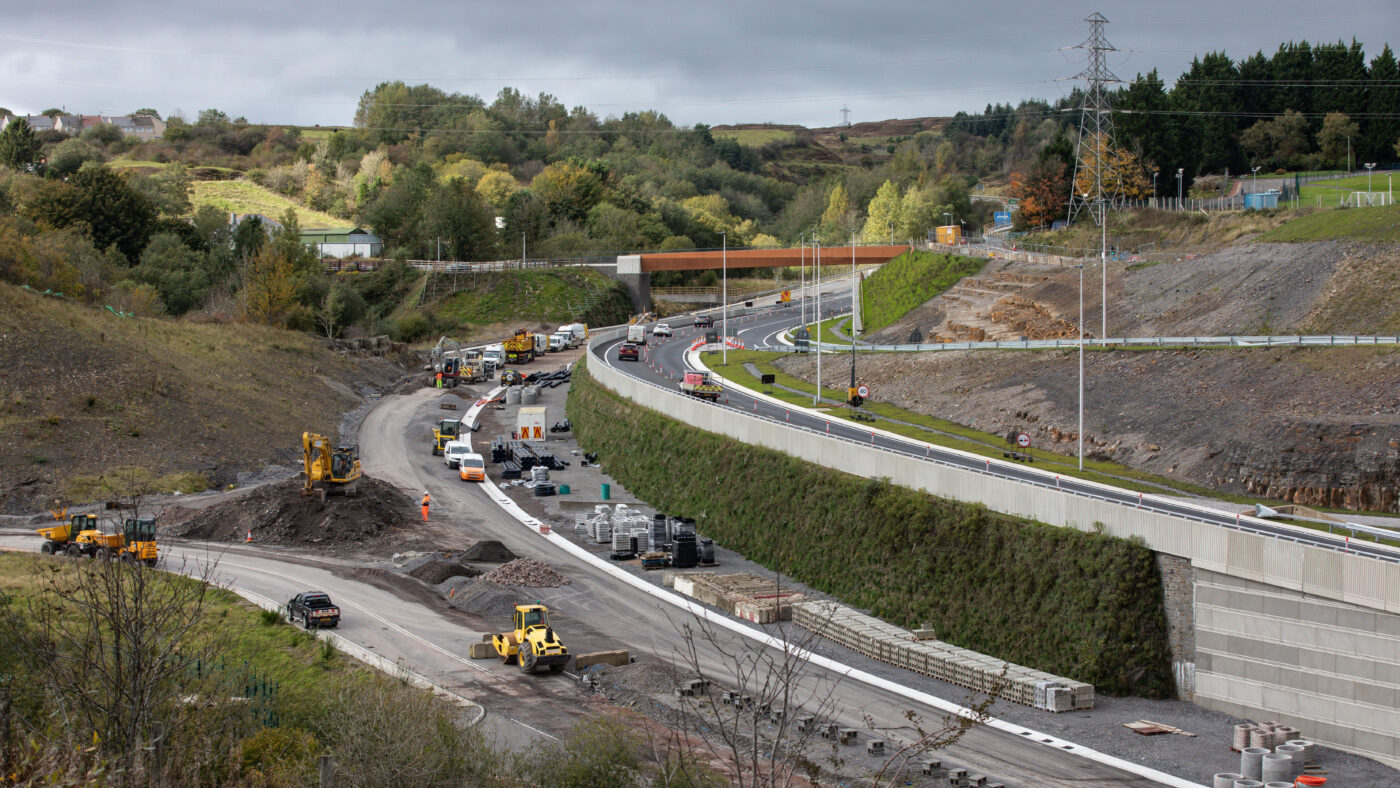Can Britain hit its ambitious climate targets and keep building new roads?
The Welsh Government do not think so. In February, they scrapped all their major road-building projects on the grounds they would make it harder to reach Net Zero. Technically, they haven’t banned roadbuilding, but the conditions that any new road project must now meet are onerous to the point of impossibility.
In Wales, new roads can’t increase emissions, can’t increase the number of cars on the road, and can’t increase road speeds. In effect, almost no road-building projects can move forward.
Towns and villages in Wales that were relying on new bypasses are understandably angry. In one Snowdonian village, Llanbedr, locals were so frustrated that half of the village’s population blocked a major road in protest, Just Stop Oil-style. But despite the public backlash, there are calls for the rest of Britain to follow Wales’ example. In fact, last week the Climate Change Committee recommended the Department for Transport conduct a similar systematic review of road-building for the rest of the UK.
Meanwhile, in the courts, environmental campaigners are using lawfare to delay and block new projects.
Take the A428 Black Cat to Caxton Gibbet, a new road that would cut journey times between Milton Keynes and Cambridge, but was subject to a legal challenge arguing the road was inconsistent with the Government’s climate policies. Their legal challenge may have been dismissed, but the activists did manage to delay construction for a year.
Road projects like the A428 can unlock new housing developments and allow more people to access better paying jobs in places like Cambridge. If they have to be scrapped, then it will be even harder for Britain to drag itself out of economic stagnation.
The good news is we don’t need to give up on building bypasses and widening roads to decarbonise transport. And in fact, new road projects will only be responsible for a tiny fraction of transport emissions.
New roads increase emissions in essentially two ways. There’s the emissions that come from building the road itself, lightening the road, and filling the potholes. Then there are the emissions that come from the new trips the road enables. After all, roads are just like any other good. When they become less congested, more reliable, and safer, people use them more. This second factor is usually known as induced demand (and sometimes called ‘suppressed demand’).
New roads are, at most, a small fraction of the 247,800 miles of road we already have. Even by 2050, the vast majority of miles will be driven on existing roads. Even if you assume very high levels of induced demand – let’s say every doubling of road capacity leads to a more than doubling of road use – new roads will still only be responsible for a very small fraction of overall transport emissions.
When you factor in the fact that cars are getting cleaner every year as we shift to EVs, you are looking at a 0.1% increase in annual transport emissions from the five years of roadbuilding between 2015 and 2020. If we banned new road projects, it would only prevent a drop in the bucket in terms of emissions, and come at a large economic cost.
Induced demand isn’t the only driver of traffic growth either. As people get richer they can afford to drive more. The National Infrastructure Commission estimates that the next 13 or so years of economic growth will lead to a 10% to 28% increase in annual traffic volumes. That’s equivalent to more than a century’s worth of road building at current rates.
Instead of focusing on the tiny fraction of roads that are yet to be built, we should be focusing on cutting emissions on the 247,800 miles of road that have already been built.
Some of this could be done through making cycling, walking, and public transport more attractive options. But it’s unrealistic to expect many communities to substantially shift away from commuting and travelling by car. Outside of large cities, public transport options are often unreliable and infrequent. And outside of encouraging them to move by densifying already well-served areas, there is limited scope for improvement.
We should focus on decarbonising transport instead. A mile driven by a petrol car today emits, on average, 105g of carbon. A mile driven by an electric car will emit, on average, just 55g. And that latter number will only fall as the grid gets greener.
In fact, moving the EV transition forward by just one year would cut emissions from transport by 2%. You could scrap every road project until 2050 and you still wouldn’t get close to that.
Britain is, and probably will always be, a nation of motorists. The Welsh approach to roads, trades maximum economic pain for minimal environmental gain. The rest of Britain should plot a different path, based on what will actually work. To get our emissions from transport down to zero, there really is no alternative to making it easier and cheaper to switch to EVs.
Click here to subscribe to our daily briefing – the best pieces from CapX and across the web.
CapX depends on the generosity of its readers. If you value what we do, please consider making a donation.


